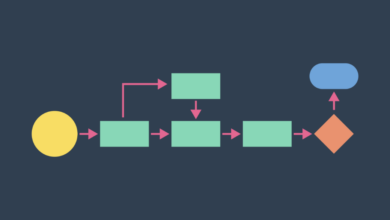What to Look for in a Hiring Platform: A Simple Guide

Introduction
In the rapidly evolving world of recruitment, businesses of all sizes seek efficient and effective ways to attract, evaluate, and hire top talent. Choosing the right hiring platform is crucial in this process, as it can significantly streamline recruiting, improve candidate experiences, and ultimately find the right fit for your company. This guide will walk you through the key features to look for in a hiring platform, ensuring that your recruitment efforts are impactful and efficient.
Ease of Use and User Experience
An intuitive and user-friendly interface is paramount in any hiring platform. A complex system can quickly dissuade both recruiters and candidates from engaging fully with the platform. Look for a system that offers seamless navigation, clear labeling of features, and helpful tutorials or support when needed. The better the user experience, the smoother the recruitment process, allowing recruiters to focus on the candidates rather than the technology.
Integration with Existing Tools
A hiring platform should bridge different recruitment processes, often requiring integration with existing tools. Whether it’s your HRMS, calendar scheduling tools, or communication platforms, seamless applicant management integration is essential. This ensures data flows smoothly without manual entry, minimizing errors and saving HR professionals precious time.
Advanced Applicant Management Features
The core of any effective hiring platform lies in its ability to manage applicants efficiently. Look for automated resume screening, application tracking, and candidate pipeline visualization features. These elements can significantly reduce administrative burdens, allowing recruiters to focus on engaging with high-potential candidates. Automated tools should complement human decision-making rather than replace it, providing a well-balanced approach to hiring.
Data Analytics and Reporting
In today’s data-driven world, insights and analytics have become indispensable in recruitment. A robust hiring platform should offer detailed analytics and customizable reporting features. These tools help recruiters understand critical metrics like the time to hire, cost per hire, and candidate sourcing effectiveness. Data-driven insights refine recruitment strategies and help make informed decisions that align with organizational goals.
Customization and Scalability
Different organizations have unique recruitment needs that evolve. A hiring platform should be flexible enough to customize to specific requirements, whether it’s tailored application forms, unique workflows, or branding elements. Additionally, as a company grows, its recruitment demands will scale. A platform that supports scale ensures that it continues to serve efficiently regardless of the recruitment volume.
Security and Compliance
Security and data compliance are non-negotiable aspects of any hiring platform. Given the sensitive nature of candidate information, robust security measures such as encryption, two-factor authentication, and regular security audits should be in place. Compliance with data protection regulations is essential to avoid legal ramifications and maintain candidate trust.
Conclusion
Selecting the right hiring platform can be a game-changer in modern recruitment strategy. Businesses can streamline their hiring processes and drive better recruitment outcomes by focusing on user experience, integration capabilities, comprehensive applicant management, data insights, and robust security measures. As you evaluate potential platforms, ensure they align with your current needs and future aspirations to leverage technology’s potential in hiring fully.




